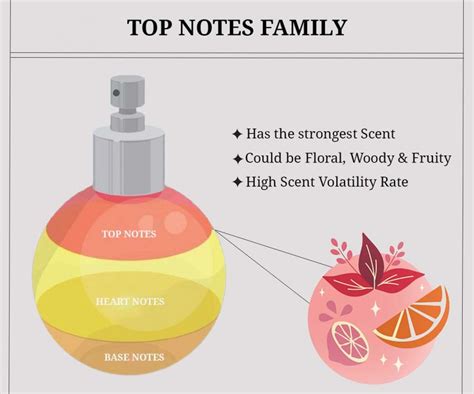How To Describe A Fragrance
Ronan Farrow
Mar 24, 2025 · 3 min read

Table of Contents
How to Describe a Fragrance: A Perfumer's Guide
Describing a fragrance is an art form. It's about more than just listing notes; it's about evoking emotion, painting a picture, and transporting the reader to a sensory experience. Whether you're writing a product description, a blog post, or simply sharing your thoughts on a perfume, mastering the art of fragrance description is key. This guide will equip you with the tools and techniques to eloquently capture the essence of any scent.
Understanding Fragrance Families
Before diving into descriptive language, understanding fragrance families is crucial. This provides a framework for your descriptions and helps you identify key characteristics. Common families include:
- Floral: Think roses, lilies, jasmine – these are often sweet, romantic, and feminine, but can range from delicate to intensely heady.
- Oriental: These fragrances are typically warm, spicy, and rich, often featuring notes like vanilla, amber, and sandalwood. They can be both sensual and comforting.
- Woody: Characterized by notes like cedarwood, sandalwood, and vetiver, woody fragrances tend to be earthy, grounding, and sophisticated.
- Fresh: These scents evoke cleanliness and freshness, often incorporating citrus, aquatic, and green notes. They're typically invigorating and uplifting.
- Chypre: A classic family blending oakmoss, bergamot, and patchouli, chypre fragrances are complex, sophisticated, and often mossy and earthy.
- Leather: These fragrances offer a bold, often smoky and animalistic quality, evocative of leather, tobacco, and other rich, intense notes.
Beyond the Notes: Crafting Evocative Descriptions
Simply listing the notes (top, heart, and base) isn't enough. To truly capture a fragrance's essence, use vivid language that appeals to the senses.
Using Sensory Language:
- Sight: While fragrance is primarily olfactory, you can use visual metaphors to enhance your description. Think "golden amber," "shimmering citrus," or "deep, shadowy woods."
- Sound: Consider the texture of the scent. Is it soft and whispering, or bold and crashing? Use words like "crisp," "silky," "robust," or "subtle" to convey this.
- Touch: Describe the feel of the fragrance. Is it powdery, creamy, sharp, or smooth? Words like "velvety," "dewy," or "spiky" can paint a tactile picture.
- Taste: Although you can't taste a fragrance, certain notes suggest taste sensations. Use words like "sugary," "bitter," "zesty," or "savory" cautiously and only if appropriate.
Using Figurative Language:
- Metaphors and Similes: Compare the fragrance to something else. For example, "The scent unfolds like a sun-drenched meadow" or "The perfume is as warm and comforting as a cashmere sweater."
- Personification: Give the fragrance human-like qualities. "The jasmine whispers its sweet secrets," or "The sandalwood embraces the skin with a woody warmth."
Structuring Your Description:
A well-structured description guides the reader through the olfactory journey. Consider this framework:
- Initial Impression: What's the first thing you smell? Use a strong opening sentence to grab the reader's attention.
- Heart Notes: Describe the evolution of the scent as it develops. What notes emerge after the initial burst?
- Dry Down: What remains after the fragrance has settled? This is often the most lasting impression.
- Overall Impression: Summarize your overall feeling about the fragrance. Is it romantic, invigorating, mysterious, or comforting?
Keywords and SEO Optimization
Remember to incorporate relevant keywords throughout your description. Think about terms people might search for when looking for a specific type of fragrance. For example, "best sandalwood perfume," "floral summer fragrance," or "masculine woody cologne."
By combining evocative language, a solid understanding of fragrance families, and strategic keyword integration, you can create compelling fragrance descriptions that resonate with readers and boost your SEO.
Featured Posts
Also read the following articles
| Article Title | Date |
|---|---|
| How To Get Pollen In Infinite Craft | Mar 24, 2025 |
| How To Cook Rice With Bone Broth | Mar 24, 2025 |
| How To Cook Frozen Asparagus On The Stove | Mar 24, 2025 |
| How To Grow Ranunculus From Seed | Mar 24, 2025 |
| How To Get To Level 20 Fast In Valorant | Mar 24, 2025 |
Latest Posts
-
How Fast Can A Clown Fish Swim
Apr 04, 2025
-
How Far Should Pitching Wedge Go
Apr 04, 2025
-
How Far Should My 7 Iron Go
Apr 04, 2025
-
How Far Should I Hit A 3 Wood
Apr 04, 2025
-
How Far Should A Pool Be From A Septic Tank
Apr 04, 2025
Thank you for visiting our website which covers about How To Describe A Fragrance . We hope the information provided has been useful to you. Feel free to contact us if you have any questions or need further assistance. See you next time and don't miss to bookmark.
